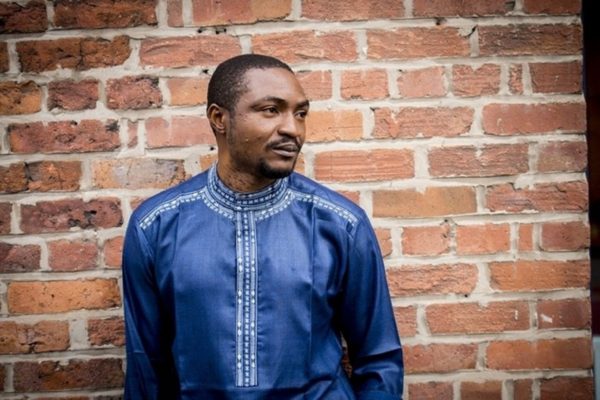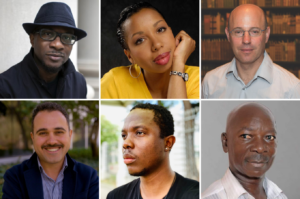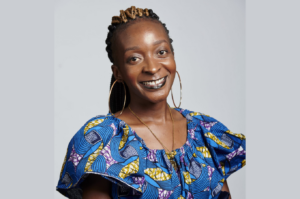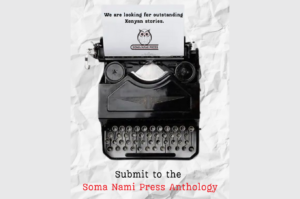
Abubakar Adam Ibrahim is the 2018 recipient of the Michael Elliot Award for Excellence in African Storytelling. He won the Award for his report in Granta titled “All That Was Familiar.” Brittle Paper covered the publication of the story in May 2017. It focuses on the lives of women who, after being kidnapped by Boko Haram in Northern Nigeria and Cameroon, now live in Internally Displaced Persons (IDPs) camps, battling both hunger and memory. The judges stated that the story “exemplifies outstanding storytelling on a difficult and important topic.” Abubakar was selected from among 238 applicants.
Established in 2016 in honor of the editor and philanthropist Michael Elliott, the $5,000 Michael Elliott Award for Excellence in African Storytelling is given by the International Center for Journalists (ICFJ) in partnership with ONE and the Elliott family, and is meant “to advance the work of an emerging journalist covering Africa who strives to strengthen people’s voices and improve their well-being.” The inaugural winner in 2017 was Kenyan health reporter Mercy Juma.
Best known for his NLNG Prize-winning novel Season of Crimson Blossoms (2015), Ibrahim is also a journalist with the Nigerian newspaper Daily Trust. His short story, “The Weight of Silence,” was shortlisted for the 2017 Brittle Paper Anniversary Award.
Abubakar was praised for his “fearless reporting and powerful writing brought home to the hardships faced by women, in particular, displaced by the scourge of Boko Haram,” with his work described as conveying “the human toll of terrorism and displacement.” Here is what we wrote in our coverage of “All That Was Familiar” last year:
In the four years since his debut short story collection The Whispering Trees, Abubakar has, by picking out stories from corners that have been silenced, established himself as one of Nigeria’s most essential writers.
That his chosen storytellers are female is significant given that it is females that bear the long-term agony of Boko Haram’s terrorism. Coming in this time when debates are raging in Nigeria about the Chibok girls, this piece gives a voice to these young women whose their bodies—how healthy or ill they look, if they are pregnant, if they were raped—have become their primary stories, the aspect of their ordeal that the public seems interested in.
The two finalists for the Award were: Lindile Yolisa Mpanza of South Africa’s SABC Digital news, for her report on the sexual abuse of widows; and Ridwan Karim Dini-Osman of Ghana’s GHOne, for his coverage of a community in crisis because its drinking water is contaminated.
The international panel of judges was chaired by Norman Pearlstine, former vice chairman of Time Inc., and included: Lionel Barber, editor of Financial Times; Joyce Barnathan, president, International Center for Journalists; Matthew Bishop, managing director, Bellagio Center, The Rockefeller Foundation; Joachim Buwembo, former ICFJ Knight Fellow based in Uganda; Erik Charas, founder, @Verdade newspaper based in Mozambique and member of ONE’s Africa Policy Advisory Board; Kate Critchley, interim executive director, Europe department, ONE; Nic Dawes, deputy executive director for media, Human Rights Watch, and member of ONE’s Africa Policy Advisory Board; Jamie Drummond, co-founder and executive director, global strategy, ONE; Jerri Eddings, senior program director, ICFJ; Daniel Franklin, executive editor, The Economist; Mercy Juma, reporter, BBC Kenya and inaugural award winner; Rik Kirkland, partner, Global Publishing, McKinsey & Company and ICFJ Director; Chika Oduah, freelance journalist based in Senegal; Declan Okpalaeke, former ICFJ Knight Fellow based in Nigeria; and Emma Oxford, author of At Least We Lived.
Abubakar will receive the Award at a May 24 reception in New York, after which he would “spend time in U.S. newsrooms to learn new skills and share knowledge in an intensive, customized program run by ICFJ.” The goal is “to help to deepen future reporting that engages and empowers Africans.”
Congratulations to Abubakar Adam Ibrahim.









COMMENTS -
Reader Interactions